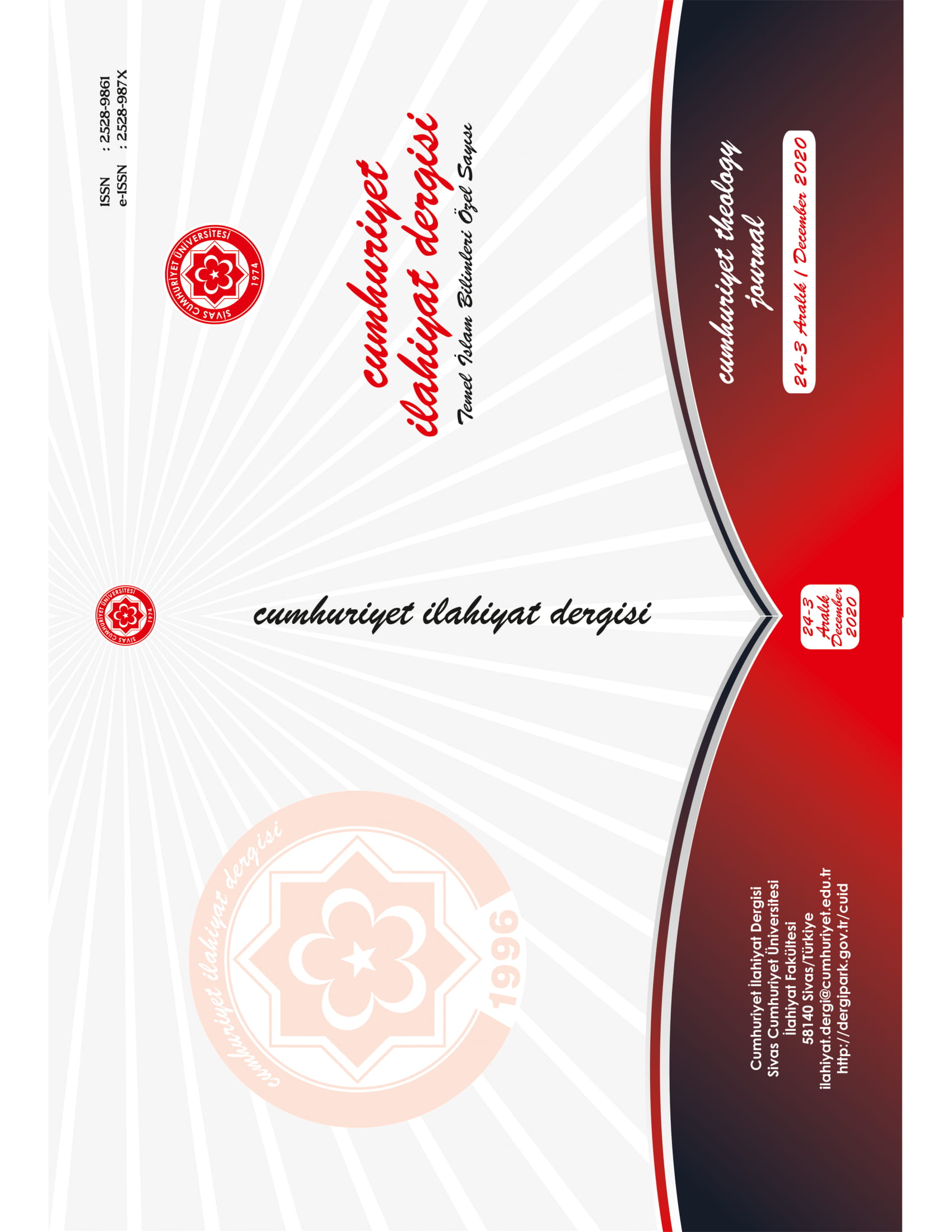Tarımsal Ürünlere Dayalı Vadeli İşlemlerin (Futures) İslam Hukukuna Uygun Olarak Yeniden Yapılandırılmasına Dair Bazı Öneriler
Some Offers for Reconfiguration of Agricultural Commodity Futures Contract According to Islamic Law
Author(s): Aytaç AydınSubject(s): Law, Constitution, Jurisprudence, Theology and Religion, Islam studies, Sharia Law
Published by: Cumhuriyet Üniversitesi İlahyat Fakültesi
Keywords: Islamic Law; Agricultural Commodity Futures Contract; Sales Promise; Actual Physical Delivery; Cash Settlement;
Summary/Abstract: Futures contracts in agricultural commodities are an agreement to buy or sell a predetermined amount of agricultural commodities (such as wheat, corn, cotton, soybeans, live pork, live cattle, cocoa, etc.) at a specific price depending on the price on a specific date in the future. Futures contracts in agricultural commodities are carried out under “commodity futures contracts” on the futures exchange. These contracts are executed in two ways in terms of the delivery of the contract subject; physical delivery and cash settlement. In the physical delivery, the underlying asset is physically received at the end of maturity. In our country, physical delivery method is used in futures contracts made on commodities. In the second contract method that results in cash settlement, there is no physical delivery of the underlying asset at the end of maturity. The transaction takes place over the settlement price at the end of maturity. Futures contracts in agricultural commodities can be analyzed in two categories in terms of Islamic law. First, within the scope of sales where both the goods and the price are on credit; the second is a combined contract that includes a promise to sell and a contract of sale when due. It is more convenient to analyze in the former because the agricultural commodities in the warehouse are kept ready to be delivered when due and the commodities price is also delivered on time. In this category, it resembles the sale of a credit on credit, which is prohibited in Islamic law. We can see that there are five parties within the exchange organization regarding the futures contracts in agricultural commodities; futures and options exchange, clearing house, brokerage houses, market participants, supervisory institutions. When the transactions of the related parties are examined in terms of legal capacity and power of representation; it is observed that brokerage houses transacting on behalf of sellers and customers operate by proxy. On the other hand, the Exchange, the Clearinghouse (Takasbank) and the custody warehouse within the scope of the exchange system; carries out transactions on behalf of the parties both as a proxy and a guarantor. Therefore, this futures transaction has the nature of containing more than one contract. When analyzed in terms of the establishment of the contract; if there are agricultural commodities that are considered as legitimate property of the Islamic law (mütekavvim), there is no objection regarding the parties and the offer-acceptance. In addition the delivery time of the commodity subject to the contract must be equal to the amount sold and the amount in the warehouse, which is guaranteed to be in the warehouse. In terms of invalid condition, one-sided benefit causing conflict for the parties contains something prohibited by the legal order. It is seen that it does not contain conditions contrary to the content of the contract and established practices. However, except for the condition that the collateral is retained with interest income in direct proportion to the period of stay in the Clearinghouse (Takasbank), in order to obtain the highest return. In terms of enforcement conditions, after the approval of the buyer and seller, transactions are carried out within the exchange system without asking for the right and approval of another person. Therefore, this contract can be considered as a running contract. In terms of the bindingness of this contract; at first glance, it can be seen as a mutual promise and non-obligatory promise based on the fact that the commodity and its price are not cash. But when the subject is examined in depth, it turns out to be a different situation. Because both parties are under mutual obligation by paying the guarantee stipulated by the Exchange, one party is obliged to deliver the commodity on time and the other party to deliver the price. In addition, the contract does not allow the parties to imagine the right. So, this contract can be considered as an obligatory contract. However, based on the current functioning futures contracts in agricultural commodities as a whole, it is considered unappropriate to Islamic law. In this study, first, the nature of futures contracts in agricultural commodities that are not deemed suitable for Islamic law in its current form are determined. Then, an analysis from the point of view of Islamic law was made and some offers were made for a model that was reconfigurated according to Islamic law.
Journal: Cumhuriyet İlahiyat Dergisi
- Issue Year: 24/2020
- Issue No: 3
- Page Range: 1407-1428
- Page Count: 22
- Language: Turkish

